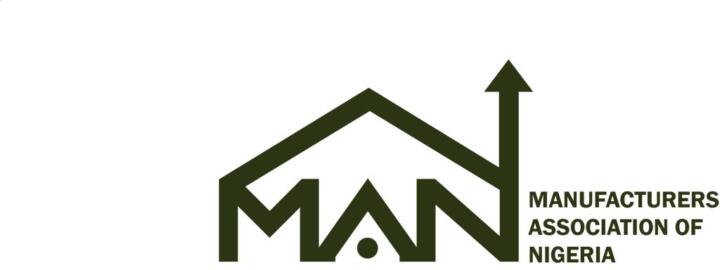The Manufacturers Association of Nigeria (MAN) has raised concerns over the challenges faced by manufacturers who are on Band A of the power distribution tariff structure, where the cost of electricity remains significantly high. Despite having access to 20 hours or more of electricity supply daily, these manufacturers are grappling with serious financial and operational challenges due to the elevated costs associated with this tariff band.
High Tariff Costs Creating Operational Strain
Band A represents the highest tier in the Nigerian electricity tariff structure, assigned to consumers who receive relatively stable electricity supply. However, for manufacturers, the elevated tariffs in this band have translated into substantial operational costs, impacting their profitability and overall sustainability. According to MAN, these high costs are unsustainable for businesses already burdened by additional expenses related to production, logistics, and importation.
The association highlighted that the current tariff model, intended to incentivize better power supply, is instead placing manufacturers in an unsustainable position. Despite the benefits of reduced reliance on backup generators and alternative power sources, the cost implications of Band A tariffs are significantly higher than what manufacturers can reasonably absorb. In the face of these escalating expenses, some companies have started to question the viability of maintaining operations under the present power structure.

Impact on Production and Competitiveness
For manufacturers, energy costs are a critical factor in determining production efficiency and market competitiveness. MAN has reported that, with power costs taking up a larger share of production expenses, many manufacturers have been forced to reduce output or delay expansion plans. The increased operational burden could even lead to product price hikes, which would diminish competitiveness in both domestic and international markets.
Some manufacturers have turned to cost-cutting measures, such as reducing their workforce or scaling back on capital investments, to balance their finances. While these measures may provide short-term relief, MAN warns they could have longer-term repercussions, such as reduced productivity, layoffs, and weakened supply chains, affecting the manufacturing sector’s contribution to Nigeria’s GDP.
### Challenges in Adopting Alternative Power Sources
One of the proposed solutions to Band A tariff costs has been the adoption of renewable energy sources, such as solar or wind power. However, MAN points out that the high initial capital required to transition to renewable sources is prohibitive for many manufacturers, especially small and medium-sized enterprises (SMEs). While larger corporations might have the resources to explore solar installations or other clean energy options, smaller businesses often lack the necessary funding or access to financing options to make this transition feasible.
Additionally, some regions have limited access to renewable resources or face infrastructural challenges that hinder the large-scale adoption of alternative power sources. Given these constraints, manufacturers in Band A are left with few practical alternatives to mitigate their electricity expenses, further compounding their financial burden.
### MAN Urges Policy Intervention
To address these pressing issues, MAN has called on the government and regulatory bodies, such as the Nigerian Electricity Regulatory Commission (NERC), to reassess the tariff structure for manufacturing companies. MAN suggests that a more balanced approach to power pricing, one that takes into account the specific challenges and needs of the manufacturing sector, could help alleviate the burden on manufacturers in Band A.
One recommendation is to establish a specialized tariff structure that distinguishes between manufacturers and other consumers, allowing businesses to access affordable electricity without being penalized for high consumption. MAN also emphasizes the need for subsidies or tax relief to assist manufacturers in offsetting some of their electricity costs. Such measures would provide manufacturers with the breathing room needed to invest in expansion and maintain employment levels.
### Implications for the Broader Economy
The challenges faced by Band A manufacturers underscore the importance of an equitable power tariff system, especially given the manufacturing sector’s role as a significant contributor to Nigeria’s economy. With the government’s ongoing efforts to promote industrialization and reduce dependence on imports, a weakened manufacturing sector could hinder national goals for economic diversification and job creation.
In addition, the strain on manufacturers could ripple through other sectors, including distribution, retail, and exports, reducing Nigeria’s competitive edge. For consumers, these issues could result in higher prices for goods, as manufacturers pass on increased operational costs. With inflation already a concern in Nigeria, the added pressure from high manufacturing costs may further stretch consumers’ purchasing power.
### The Road Ahead for Power Reforms
As Nigeria continues to navigate its power sector reforms, the concerns raised by MAN highlight the need for a balanced approach that ensures fair and sustainable electricity pricing. Addressing the challenges faced by Band A manufacturers will require concerted efforts from both the government and industry stakeholders to find a solution that fosters economic growth without imposing undue financial strain on businesses.
MAN’s advocacy has drawn attention to the critical importance of affordable and stable power in driving Nigeria’s industrial sector forward. By creating policies that are tailored to the unique needs of manufacturers, Nigeria can strengthen its industrial base and enhance the resilience of its economy, even in the face of global economic challenges.
Support InfoStride News' Credible Journalism: Only credible journalism can guarantee a fair, accountable and transparent society, including democracy and government. It involves a lot of efforts and money. We need your support. Click here to Donate
